Photographs: Wikimedia Commons Simki Dutta
A shiver runs down our spines upon hearing about breast cancer, but how many of us are aware of the equally life-threatening cervical cancer? There are about 1,30,000 cervical cancer cases reported every year worldwide. To top it all, studies reveal that India contributes around 18-24 percent of this shocking figure.
When it comes to cervical cancer, many of us are ignorant. Life is precious and if we can protect ourselves from this deadly disease from the start, then why not? Here are a few things you must know about this lesser-known disease.
What is cervical cancer?
Cervical cancer is cancer of the cervix, which is the mouth of the uterus. Like most cancers, it can be prevented if you start taking precautions from the beginning. The spread of this cancer is slower than other types of cancer, which is why early detection proves to be of great help. While the average age of cervical cancer patients is 48, even those in their 20s are sometimes diagnosed with it. So never put if off thinking you're 'too young'.
Are you at risk?
The major cause of cervical cancer is getting infected by the Human Papilloma Virus (HPV). HPV types 16 and 18 are generally believed to have caused 70 percent of cervical cancer cases.
"Other than HPV infection, the other risk factors include sexual intercourse and pregnancy at an early age, having multiple sexual partners, smoking, multiple pregnancies and early use of too many oral contraceptives. Exposure to sexually transmitted diseases like Human Immunodeficiency Virus and Chlamydia also increases the chances of cervical cancer" says Dr Pratap Das, senior consultant at Apollo Cancer Institute, Delhi.
A recent study showed that male circumcision reduces the chances of getting cervical cancer as it is said to reduce the transmission of HPV to women.
"There has not been any definitive evidence to support the claim that circumcision of the male partner reduces the risk of cervical cancer, although some researchers say there is compelling epidemiological evidence that those men who have been circumcised are less likely to be infected with HPV. However, in men with low-risk sexual behaviour and monogamous female partners, circumcision makes no difference to the risk of cervical cancer," adds Dr Ranjeet Bajpai, consultant radiation oncologist at Hinduja Hospital, Mumbai.
Symptoms
Unfortunately, early cervical cancers don't usually show any symptoms. Only when the cancer starts spreading to the other tissues do the symptoms start appearing.
The most common symptom is abnormal vaginal bleeding which includes bleeding between regular menstrual periods, bleeding post menopause and bleeding after sexual intercourse. Prolonged foul vaginal discharge and pain during sexual intercourse are also possible signs of cervical cancer.
"Loss of appetite, weight loss, fatigue, pelvic pain, low back pain, leg pain, single swollen leg, heavy bleeding from the vagina, leaking of urine or faeces from the vagina (rare) are a few symptoms that appear in the later stages. Cervical cancer may also be present as a metastasis disease in the abdomen, lungs or elsewhere," says Dr Sachin Almel, oncologist at Hinduja Hospital, Mumbai.
Get tested
If early detection can cure cervical cancer then why not take fifteen minutes out for your body and take to regular screening? A woman must get a Pap smear test done as soon as she is sexually active, irrespective of her age.
"Cervical cancer screening is typically recommended starting three years or more after the beginning of sexual activity, or starting at age 21 to 25. Recommendations for how often a Pap smear should be done vary from once a year to once every five years, in the absence of abnormal results," explains Dr Bajpai.
Cervical cancer has a long window period which allows you to catch pre-malignant cancer before it gets too late. After all, it's better to be safe than to be sorry, right?
Important tests
The first test for cervical cancer is the Pap smear test. Many confuse a Pap test with a pelvic exam. A Pap test includes examining the cells removed from the surface of the cervix. It has been credited with reducing the incidence and mortality of cervical cancer in developed countries.
The HPV test is a newer technique which detects the presence of HPV in the cervix. "It is more sensitive than the Pap smear (less likely to produce false negative results), but less specific (more likely to produce false positive results) and its role in routine screening is still evolving," says Dr Bajpai.
Can cervical cancer be treated?
Yes, it can be treated and the earlier it's detected, the better the chances for survival, which is why regular screenings are a must. Treatment is given as per the stage of cervical cancer, the location of the cancer and age of the patient among a few other factors. Treatment methods include surgery, radiotherapy and chemotherapy.
"Surgery is carried out in the early stages. Radiotherapy can also be done in the early stages or for some it's done after surgery and is given by external beam and the intracavitary method. Chemotherapy may also be required depending on the stage of the disease and it is usually given during radiotherapy," says Dr Das.
The role of preventive vaccines
Vaccination against cervical cancer is believed to be rather effective. Gardasil is a vaccine against HPV types 6, 11, 16 and 18, which is up to 98 percent effective.
"HPV vaccines target girls and women of ages nine to 26, because the vaccine only works if given before infection occurs; therefore, public health workers are targeting girls before they begin sexual activity. As this vaccine is not effective in treating viruses that already exist, it is recommended to get a Pap test done even if you're vaccinated," says Dr Geeta Kadayaprath, cancer specialist at Max Care Centre, Delhi.
The vaccines have been shown to be effective for at least four to six years, and it is believed they may be effective for longer. However, the duration of effectiveness and whether a booster will be needed is still unknown.

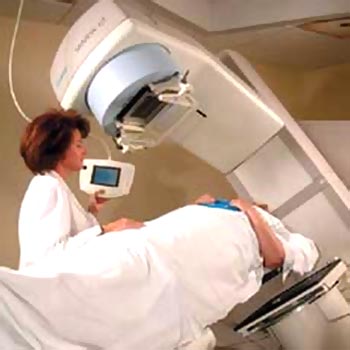
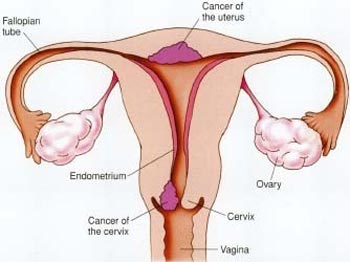
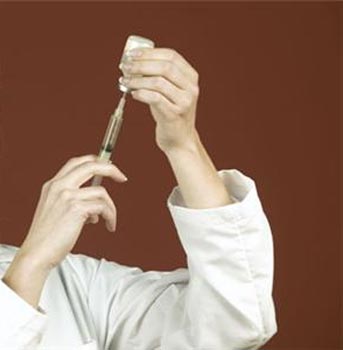


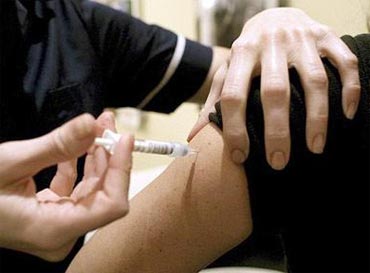
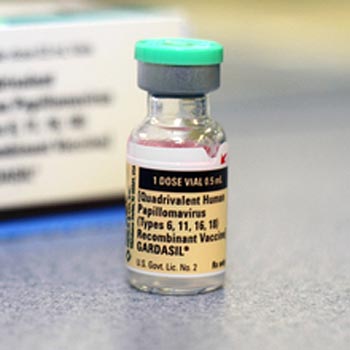
Comment
article